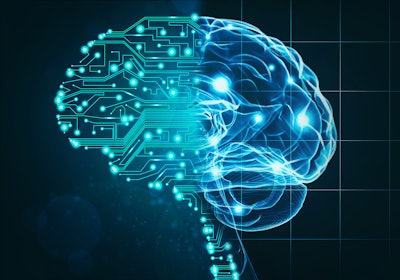
Artificial intelligence (AI) is changing the way supply chains operate. By helping to automate the analysis of large data sets and making it easier to identify trends in data, AI frees up time for supply chain professionals to engage in value-added activities that only humans can carry out. For example, even the best technology is no substitute for the uniquely human relationship-building skills that support listening to stakeholders, communicating effectively with business partners, innovating and thinking strategically about how to approach challenges.
Through its AI in supply chain research, APQC has found that there are at least six new skills that supply chain employees need to develop or enhance as the result of AI adoption. While some of these are technical skills, most are soft skills that help supply chain professionals to forge stronger relationships, work more effectively with partners and solve complex problems. Actively building and strengthening these skills among supply chain professionals is important in order to leverage AI effectively and strategically use the time it frees up.
Active listening and communication
Active listening and communication skills sit at the top of the list. Supply chain employees must be able to effectively discern the needs of their stakeholders, maintain positive relationships with partners and convey clear expectations to suppliers and other service providers.
Creativity and innovation
The business adage “innovate or die” may sound dramatic, but it also happens to be true in today’s business climate. In the face of numerous disruptions and other unplanned challenges, supply chain professionals need to think creatively in order to find novel solutions that keep the business running.
Technical skills in data science, machine learning and modelling
The need for new soft skills does not detract from the importance of technical skills. To get the most out of investments in AI, supply chain professionals need to know how to leverage the technology effectively in order to derive insights that can lead to better decisions.
Strategic thinking
AI can use data to model trends and make predictions, but humans still need to discern what the data means in the context of an organization’s broader goals and strategy. Supply chain professionals must be able to look at evidence from data and make the best decision for the business, especially when there is no evident “right” answer to an emerging trend or challenge.
Analytical skills with business acumen
Supply chain employees need to be able to translate the findings of AI in a way that makes sense to organizational leaders and connects to the priorities they care about. The ability to tell a clear and compelling story about data that connects to business strategy helps to bridge the gap between insight and action.
Looking forward
The key to retaining employees who will thrive in future supply chain roles is to ensure that they have the right mix of skills to support AI and leverage it strategically. Many organizations have already committed to providing learning opportunities for supply chain professionals to develop or enhance these critical skills. For example, APQC has found that organizations are investing a median of seven days in employee learning per employee to ease the transition to AI. This training helps to prevent skills shortages and is a smarter investment than trying to hire new individuals with the necessary skills.














![Pros To Know 2026 [color]](https://img.sdcexec.com/mindful/acbm/workspaces/default/uploads/2025/08/prostoknow-2026-color.mduFvhpgMk.png?ar=16%3A9&auto=format%2Ccompress&bg=fff&fill-color=fff&fit=fill&h=135&q=70&w=240)




